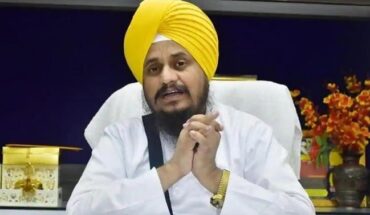Jamaat-e-Islami Hind (JIH) expressed dismay at the release of those convicted in the Bilkis Bano Rape Case. She was a victim of the 2002 Gujarat carnage. JIH condemns the role of the Gujarat government in ensuring the release of those convicted and sentenced to life imprisonment in the Bilkis Bano gang rape case and the murder of seven members of her family. Such decisions that are aimed at reaping political dividends to appease a particular constituency are highly objectionable. We condemn the decision and hope the apex court intervenes in the matter to reverse this grave injustice carried out under the guise of official government policy. The remission policy should be applied to those languishing in jails for petty crimes not for heinous crimes like rape and murder. If state governments are allowed to free criminals of their choice through a remission policy despite being convicted for crimes like rape and murder, then this will make a mockery of our justice dispensation system and the citizens will lose hope in the supremacy of the law. This is bound to embolden criminals and their masterminds as they will be confident of being bailed out by the system sooner or later despite committing the most heinous crimes. The manner in which these convicts are being felicitated and lauded is quite reprehensible. Jamaat-e-Islami Hind has requested the President of India to intervene in the matter and give direction to the Guajrat Government through the PM and the Home Minister to reverse the decision of releasing those convicts so that the system of justice and governance can be saved from becoming paralyzed and ineffective.
According to the latest data released by the National Crime Records Bureau (NCRB), 1.63 lakh people committed suicide in India in 2021. That makes it one suicide every four minutes. The number of suicides in 2020 and 2019 was 1.53 lakh and around 1.3 lakh respectively. The 2021 figure shows an increase of 7.2% from 2020. At 120 deaths per million population, 2021 also saw the highest rate of deaths from suicide since 1967. Data shows the economically weaker sections of society (whose annual income is less than Rs 1 lakh) make up nearly two-thirds of all suicides. Categorizing suicides according to the profession of the person, we find that suicide rates were highest among self-employed (entrepreneurs), students, farmers, and agricultural laborers. The largest share of suicides was found among the daily wage earners. They make up nearly a fourth of all suicides in 2021.
Crime against women rose by 15.3% in 2021 compared to 2020. In 2021, we had 4.28 lakh cases of crimes against women registered compared to 3.71 lakh cases in 2020.
In 2021, crimes against SCs and STs also rose by 1.2% and 6.4%, respectively, compared to 2020. The 2021 data shows Uttar Pradesh with 13,146 cases has the highest number of cases of atrocities against SCs, accounting for 25% of the total number, followed by Rajasthan with 14% (7,524 cases), Madhya Pradesh with 14% (7,214 cases) Bihar with 11% (5,842 cases) and Odisha with 4.5% (2,327 cases). These five states reported 70% of cases of atrocities against SCs.
Jamaat-e-Islami Hind expresses serious concern over these numbers. It shows that the wrong policies of the government have put a lot of stress and burden on daily wagers, farmers, farm laborers, students, and low-income people. Crime against women and SCs are on the rise. The government must do some serious rethinking on its policies that is leading to people preferring death over a life of pain and misery.
Jamaat-e-Islami Hind expresses grave concern over the extraordinary delay in delivering justice in India. On Tuesday, the Supreme Court of India closed all proceedings arising out of the 1992 Babri Masjid demolition and 2002 riots in Gujarat. The apex court said these cases have now become infructuous with the passage of time. Regarding the contempt petition pertaining to the Babri Masjid demolition, the Supreme Court bench admitted that it was unfortunate that the matter was not taken up earlier. According to the government’s own admission in Parliament, over 4.70 crore cases are pending in various courts in the country, including 70,154 cases in the Supreme Court, 59 lakhs in the 25 High Courts of India, and 3.9 crore cases in the district and subordinate courts. Almost 75% of people languishing in Indian jails are undertrials booked for petty crimes. There are many reasons for this huge pendency including the tendency of ‘luxurious litigation” in which
litigants try to delay the judicial process in different ways. Moreover, there are many unfilled vacancies for judges. India lacks a robust alternative dispute resolution mechanism that may reduce the workload of the mainstream judiciary. An unfortunate aspect of the problem is that the government itself is a litigant in almost 50% of all pending cases. One suggestion to reduce pendency is to link the number of judicial courts with the potential workload and not merely with revenue divisions or some other administrative consideration. If we have one sessions court per 10 lakh population, then we will need 1,350 subordinate courts compared to the existing 670. Vacancies for the required additional, joint, and assistant judges should also be filled. Their number would need to be doubled to about 50,000. Other positions like court masters, readers, and ministerial staff are also required.
Jamaat-e-Islami Hind expresses grave concern over the news that more than 600 farmers committed suicide in the Marathwada region of Maharashtra in the first 8 months of 2022. Excessive rains in that area impacted more than a lakh farmers and their produce was badly damaged. By the government’s own admission in the Lok Sabha, more than 17,000 farmers committed suicide in different parts of India between 2018 and 2020. As per the NCRB data, 5,763 farmers or cultivators committed suicide in 2018. That number increased to 5,957 in 2019 and was 5,579 in 2020. The states with the most farmer suicides In 2020 were Maharashtra, followed by Karnataka, Andhra Pradesh, Madhya Pradesh, and Chhattisgarh. According to a CNN report, almost 30 people commit suicide every day in the farming sector. The major reason for farmer’s suicide is the prevalence of loans from local money lenders with high-interest rates (up to 60%). In many cases, the farmers do not get the MSP. Small and marginal farmers cannot afford to buy the required chemicals, fertilizers, seeds, and equipment like tractors and submersible pumps. Jamaat-e-Islami Hind believes that farmers should be provided loans at zero interest and there should be a loan waiver scheme for deserving and marginalized farmers. The government should fulfill its promise of doubling farmers’ income and come out with a white paper on how it plans to solve India’s agrarian crisis.




